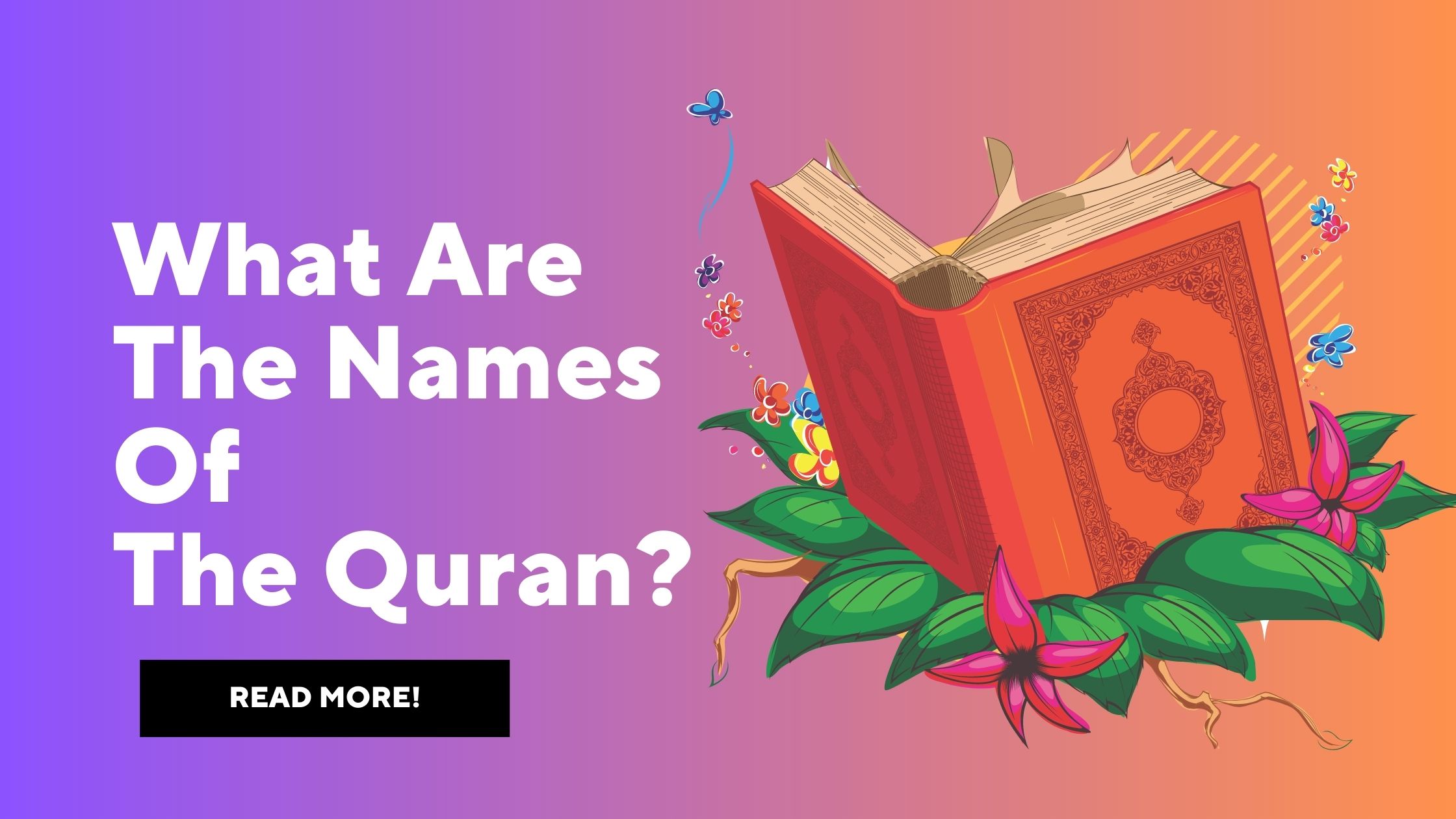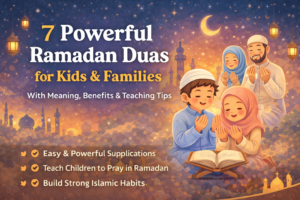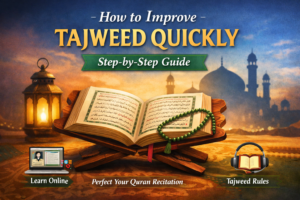How Many Names of The Quran? The Quran is revered under twelve distinct names in Islamic tradition, each encapsulating its profound significance and multifaceted role in guiding believers. The Names of the Quran are Al-Quran, meaning “The Recitation”; Al-Furqan, or “The Criterion”; Al-Kitab, or “The Book”; Al-Dhikr, or “The Reminder”; Al-Tanzeel, or “The Revelation”; And more detailed below. These names collectively showcase the Quran’s profound impact as a source of guidance, mercy, healing, and admonition for believers seeking spiritual enlightenment and moral direction in their lives.
These names of the Quran encompass its essence and purpose, highlighting its significance as a recitation, a criterion, a book of divine knowledge, a reminder, a revelation, and a guidance for humanity.
These are just a few of the names attributed to the Quran. The Quran holds a significant place in Islam and is revered as the literal word of Allah as revealed to the Prophet Muhammad (SAW).
Table of Contents
What Are The Names Of The Quran?
The Quran is referred to by several names. Allah mentioned his noble book in the Quran with several names, which are:
1. Al-Quran
Al-Quran: This is the most commonly used name for the Islamic holy book. It means “The Recitated Book” or “The Reading.”
Al-Quran is the most common name of the holy book of Islam. It means “The Recitation” or “The Reading.” This name signifies that the Quran is meant to be recited, recited aloud, and read by believers as a means of seeking guidance, understanding, and spiritual connection with Allah. It serves as the primary source of Islamic teachings, laws, and principles.
2. Al-Furqan (The Criterion for judging right from wrong).
Al-Furqan: This name emphasizes the Quran’s role as a criterion or a distinguishing factor between right and wrong.
Al-Furqan refers to the Quran as “The Criterion.” This name emphasizes the Quran’s role as a standard or criterion for distinguishing between right and wrong, truth and falsehood, and good and evil. The Quran provides clear guidelines and principles that enable believers to discern and make righteous choices in their lives. The Quran acts as a criterion to judge and differentiate between moral and immoral actions.
3. Al-Kitab (The Book):
Al-Kitab: It means “The Book” and highlights the Quran as a written record of divine revelation.
Al-Kitab highlights the Quran as a written revelation from Allah, a sacred scripture that contains divine knowledge and guidance. The Quran signifies the Quran’s status as a comprehensive record of Allah’s words and teachings.
The Quran is considered the ultimate book of wisdom and guidance for Muslims, providing instructions for personal conduct, societal interactions, and spiritual growth.
4. Al-Dhikr (The Reminder).
Al-Dhikr: This name emphasizes the Quran as a reminder or a source of remembrance for believers.
Al-Dhikr denotes the Quran as “The Reminder.” This name reflects the Quran’s purpose of reminding humanity about Allah, their purpose in life, and the consequences of their actions.
The Quran serves as a constant reminder of Allah’s presence, His mercy, and the importance of following His guidance. The Quran reminds believers of their duties, responsibilities, and the importance of living a righteous life.
5. Al-Tanzeel:
Al-Tanzil: It means “The Revelation” and emphasizes that the Quran is the divine message sent down from Allah.
Al-Tanzeel signifies that the Quran is a divine revelation sent down from Allah to Prophet Muhammad (peace be upon him) through the angel Gabriel. This name highlights the Quran’s miraculous nature as the direct words of Allah revealed to guide and enlighten humanity. It emphasizes the Quran’s descent from the heavens to the earthly realm, carrying Allah’s message for humanity.
6. Al-Huda (The Guidance).
Al-Huda refers to the Quran as “The Guidance.” This name emphasizes that the Quran is a source of divine guidance for mankind. It serves as a roadmap for individuals, communities, and societies, providing comprehensive guidance in matters of faith, morality, law, and spirituality.
The Quran illuminates the path of righteousness, offering clear instructions and principles for believers to follow in order to attain closeness to Allah and lead a purposeful life.
7. Al-Nur (The Light):
Al-Noor: It means “The Light” and signifies the Quran’s illuminating and enlightening nature.
Al-Nur translates to “The Light” in English. This name signifies the Quran’s role as a source of spiritual illumination, guidance, and enlightenment. It reflects the belief that the Quran brings clarity, dispels ignorance, and illuminates the path of righteousness for individuals and societies.
Just as light removes darkness, the Quran is believed to illuminate hearts and minds, providing guidance and illuminating the truth. It is through the teachings and principles of the Quran that believers strive to attain spiritual enlightenment and lead righteous life.
The name Al-Nur emphasizes the Quran’s transformative power and its ability to bring light and guidance into the lives of those who seek its wisdom.
8. Al-Shifa (The Healing):
Al-Shifa (The Healing): Al-Shifa refers to the Quran as “The Healing.” This name signifies the Quran’s ability to bring spiritual, emotional, and even physical healing to individuals.
The Quran provides guidance, solace, and remedies for various ailments, whether they are physical, psychological, or spiritual. It offers comfort and a source of tranquility to those who seek it, serving as a means of healing and restoration.
9. Al-Burhaan (The Clear Evidence):
Al-Burhaan emphasizes the Quran’s role as “The Clear Evidence.” It signifies that the Quran is a comprehensive and unmistakable proof of Allah’s existence, His oneness, and His guidance.
The Quran contains clear teachings, moral principles, and divine laws that serve as undeniable evidence of its authenticity and the truth of Islam. It presents logical arguments, rational proofs, and compelling evidence to guide humanity toward righteousness and belief in the Oneness of Allah.
10. Al-Haqq (The Right):
Al-Haqq refers to the Quran as “The Right” or “The Truth.” This name highlights the Quran’s role as a source of ultimate truth, divine wisdom, and absolute guidance. The Quran contains the authentic and unerring words of Allah, revealing the true nature of reality, the purpose of life, and the path to righteousness.
The Quran distinguishes truth from falsehood, guiding believers toward the right way of living and understanding the world in accordance with Allah’s divine wisdom.
11. Al-Rahmah (The Mercy):
Al-Rahmah emphasizes the Quran as “The Mercy.” It highlights the Quran’s compassionate and merciful nature. The Quran is a divine gift to humanity, offering guidance, forgiveness, and mercy from Allah.
The Quran contains teachings that promote love, compassion, and forgiveness, and it emphasizes the importance of showing mercy to others. The Quran’s message of mercy extends to all aspects of life, encouraging believers to seek Allah’s mercy and to be merciful towards others.
12. Al-Mau’iza (The Admonition):
Al-Mau’iza refers to the Quran as “The Admonition.” This name signifies that the Quran serves as a powerful reminder and a source of admonition for believers. It contains lessons, warnings, and reminders about the consequences of actions, both in this world and the Hereafter. The Quran admonishes people to reflect on their deeds, turn away from wrongdoing, and strive for righteousness. It offers guidance and reminders that help believers stay on the right path and avoid the pitfalls and temptations of life.
These names of the Quran highlight its multifaceted nature, showcasing its ability to heal, provide evidence, reveal truth, show mercy, and offer admonition to humanity.
What Are The 5 Famous Names Of The Quran?
The five famous names of the Quran mentioned in Islamic tradition are:
- القرآن (Al-Quran): This term means “the recitation” or “the reading” and refers to the Quran as the central religious text of Islam, revealed to Prophet Muhammad (PBUH) by Allah.
- الفرقان (Al-Furqan): Translated as “the criterion” or “the distinction,” this name emphasizes the Quran’s role in distinguishing between truth and falsehood, guiding believers toward righteousness.
- الذكر (Adh-Dhikr): Meaning “the reminder” or “the remembrance,” this name highlights the Quran’s function as a source of guidance and spiritual nourishment for Muslims.
- الكتاب (Al-Kitab): Literally translating to “the book,” this name emphasizes the Quran’s status as a divine scripture containing Allah’s guidance and commandments for humanity.
- النُّور (An-Nur): Translated as “the light,” this name underscores the Quran’s role in illuminating the hearts and minds of believers, providing clarity and guidance in matters of faith and morality.
Learn Quran Online With Bayan al-Quran:
Embark on a transformative journey of Quranic learning with Bayan Al-Quran’s comprehensive online courses. Our platform offers an authentic and immersive experience tailored to learners worldwide. Whether you’re a beginner or seeking to enhance your skills, our Tajweed courses provide expert guidance and structured learning to master the art of Quranic recitation.
🎓 Expert Guidance:
Benefit from experienced instructors who specialize in Tajweed, breaking down complex rules into manageable segments for learners of all levels.
✨ Key Features:
- Structured, step-by-step learning approach.
- Access to high-quality instructional materials.
- Real-time feedback from qualified tutors to enhance your practice.
- Flexible learning schedules to accommodate your pace and convenience.
- Immerse yourself in the melodious tones of Quranic recitation, enriching your spiritual experience.
🌟 Why Choose Bayan Al-Quran?
Join our vibrant community dedicated to perfecting Quranic recitation. Build a profound connection with the divine words of the Quran and enrich your spiritual journey. Choose Bayan Al-Quran for a transformative learning experience and embark on a path to mastering Tajweed with confidence.
You can also attend online Quran Classes with Bayan al-Quran with Native Arab tutors. There are also several courses that can help you in this regard:


















